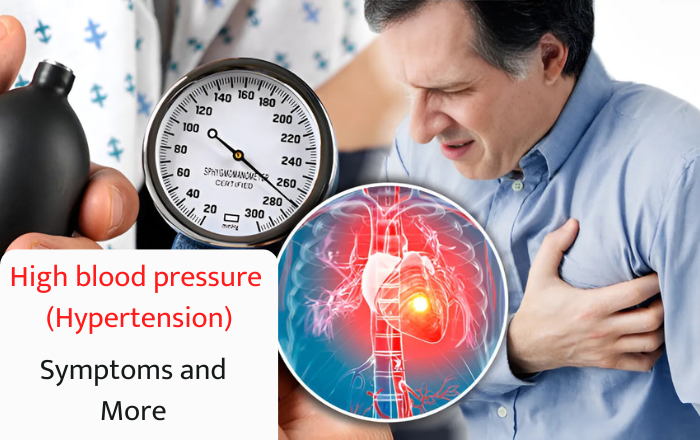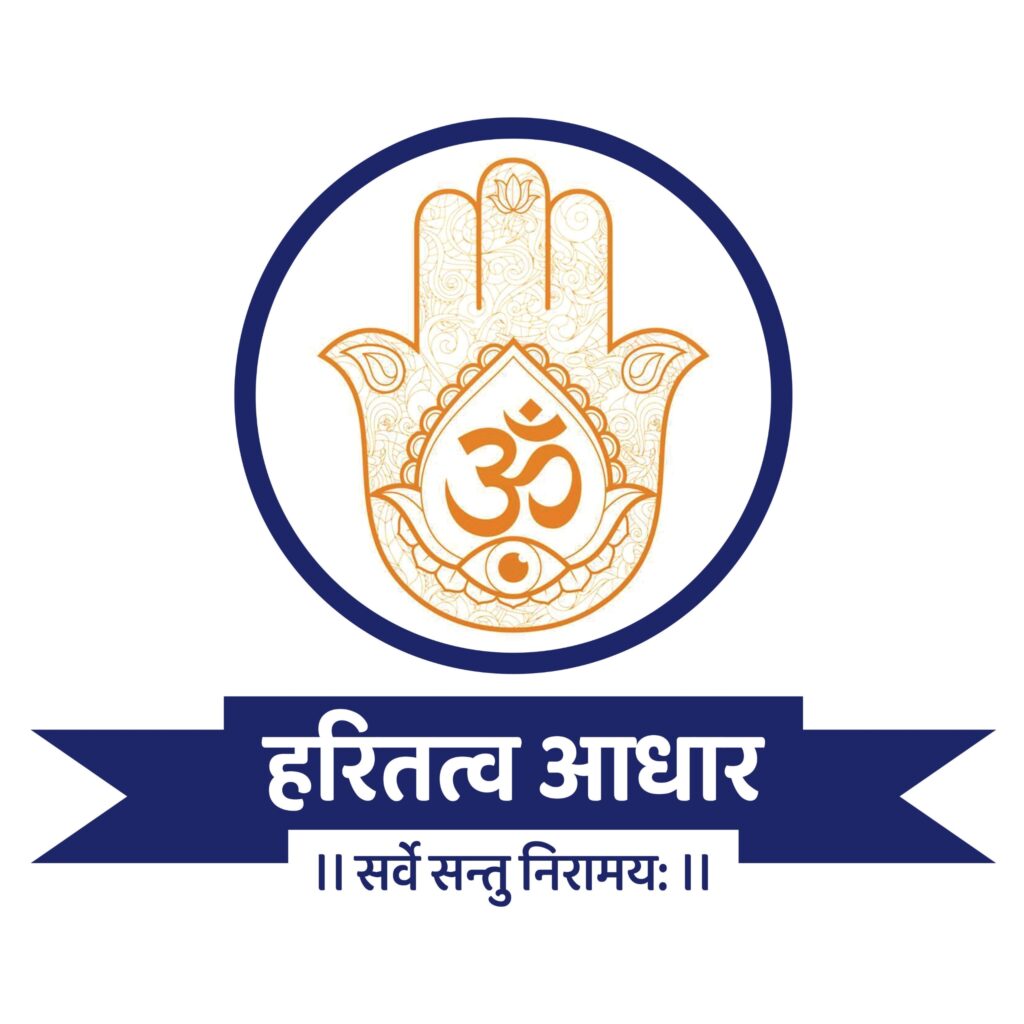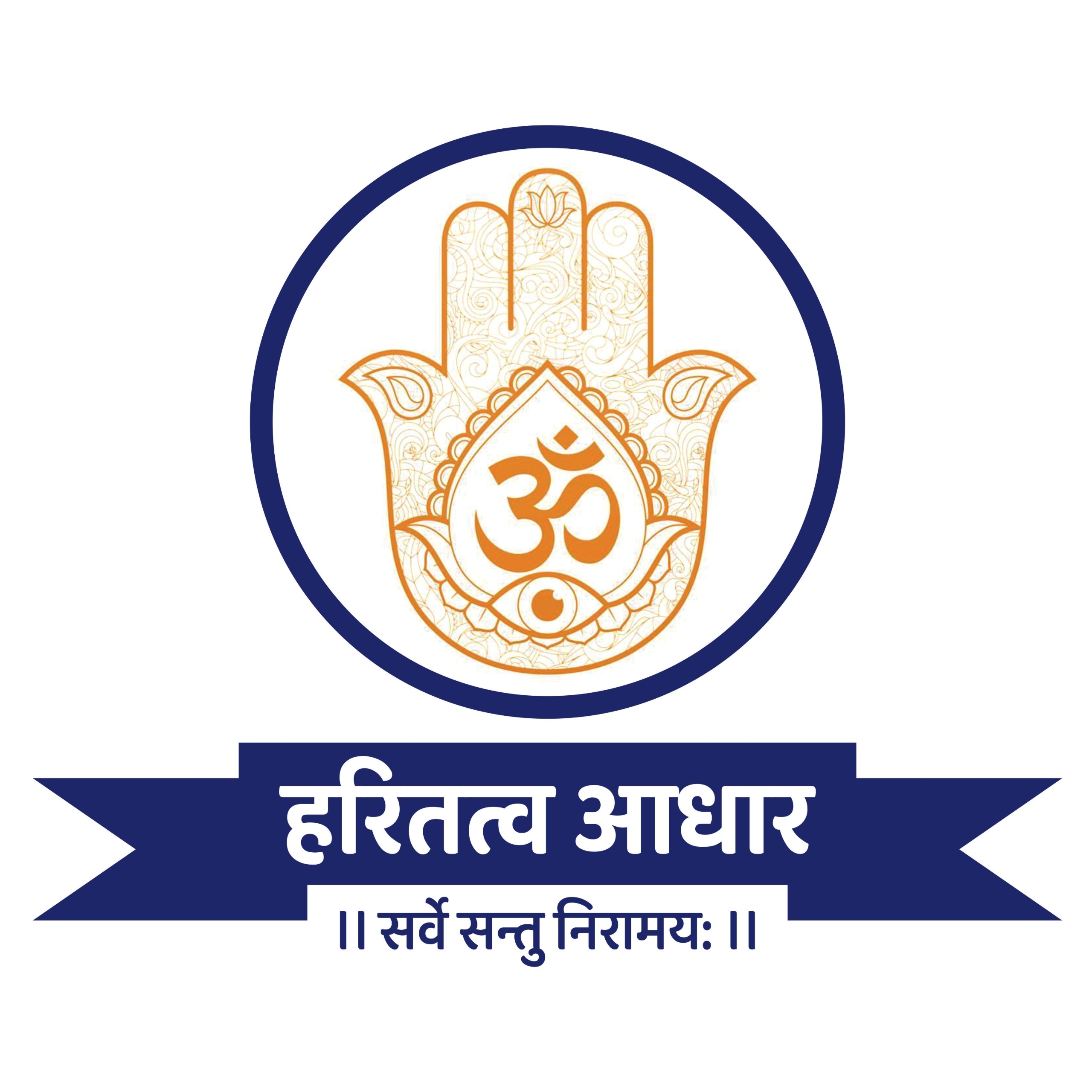High blood pressure (hypertension): Symptoms and More

Welcome to our guide to high blood pressure, also known as hypertension. Often referred to as the “silent killer,” this condition affects millions of people worldwide, often with no noticeable symptoms. Understanding high blood pressure, its causes, and how to manage it can significantly improve your quality of life. Whether you’re here to learn about its symptoms or how to prevent it, this blog covers everything you need to know about hypertension. 1. What is High Blood Pressure (Hypertension)? High blood pressure occurs when the force of the blood against the walls of your arteries is consistently too high. Blood pressure is measured as two numbers: Systolic pressure: The pressure when your heart beats. Diastolic pressure: The pressure when your heart is resting between beats. A reading of 120/80 mmHg or lower is considered normal, while a reading of 140/90 mmHg or higher indicates high blood pressure. This condition can develop over years and can lead to serious health problems if left untreated. 2. Common Symptoms of High Blood Pressure Hypertension often develops silently, without any noticeable signs. However, in some cases, people may experience symptoms such as 1. Persistent headaches 2. Dizziness or lightheadedness 3. Shortness of breath 4. Nosebleeds 5. Blurry or double vision If you notice these signs, it’s essential to check your blood pressure regularly. 3. Risk Factors for Hypertension Several factors increase the likelihood of developing high blood pressure. Non-modifiable factors: Family history of hypertension Age (risk increases with age) Gender (men are more susceptible before age 55 and women after age 55) Modifiable Factors: Diet high in salt and low in potassium Lack of physical activity Being overweight Smoking and excessive alcohol consumption Chronic stress Understanding these risks can help you take steps to prevent hypertension. 4. Causes of High Blood Pressure Hypertension can be divided into two categories based on its cause: Primary Hypertension: Develops gradually due to a combination of lifestyle and genetic factors. Secondary Hypertension: Results from underlying conditions such as kidney disease, hormonal imbalances, or certain medications. Identifying the cause is critical to effective treatment. 5. Complications of Untreated Hypertension If left unchecked, high blood pressure can lead to severe complications, including: Heart attack or heart failure Stroke Kidney disease Loss of vision Aneurysms (weakened blood vessel walls) Early detection and management are key to avoiding these serious outcomes. 6. Diagnosis and Monitoring of Hypertension Hypertension is diagnosed using a simple blood pressure test. Regular monitoring will help you track your progress and make sure your numbers stay under control. You can monitor your blood pressure at home with reliable devices. Talk to your healthcare provider if your readings are consistently high. 7. Treatment Options for High Blood Pressure Treatment usually involves a combination of lifestyle changes and medications. Lifestyle Changes: Healthy Eating: Follow a diet rich in fruits, vegetables, whole grains, and lean proteins. Reduce salt and avoid processed foods. Regular Exercise: Aim for at least 30 minutes of moderate activity most days. Weight Management: Maintain a healthy weight to reduce strain on your heart. Quit Smoking: Smoking damages your blood vessels and raises blood pressure. Stress Reduction: Practice relaxation techniques like meditation or yoga. Medications: Your doctor may prescribe medicines such as diuretics, beta-blockers, or calcium channel blockers, depending on your condition. 8. Prevention of Hypertension Preventing hypertension involves simple yet effective steps, such as: Eating a balanced, low-sodium diet Staying active Maintaining a healthy weight Limiting alcohol intake Avoiding tobacco products Managing stress effectively These habits not only prevent high blood pressure but also promote overall health. Hypertension Treatment at Aadhar Multispeciality Hospital If you’re looking for Hypertension Treatment in Dehu, Aadhar Multispeciality Hospital provides comprehensive services to manage high blood pressure effectively. From accurate diagnosis to offering guidance on lifestyle changes and medication, the hospital ensures you receive the care you need to control hypertension and prevent complications. For reliable Hypertension Treatment in Dehu, visit Aadhar Multispeciality Hospital today to take the first step toward better health. For appointments and inquiries, visit Aadhar Multispeciality Hospital in Dehu today. FAQs on High Blood Pressure 1. How can I reduce my blood pressure quickly at home? Take slow, deep breaths, avoid salty foods, and drink plenty of water. 2. When should I see a doctor for hypertension? Consult a doctor if your readings are consistently above 140/90 mmHg or if you experience symptoms like severe headaches or chest pain. 3. What is the normal range for blood pressure? The normal range is below 120/80 mmHg. Anything above this should be monitored closely.

